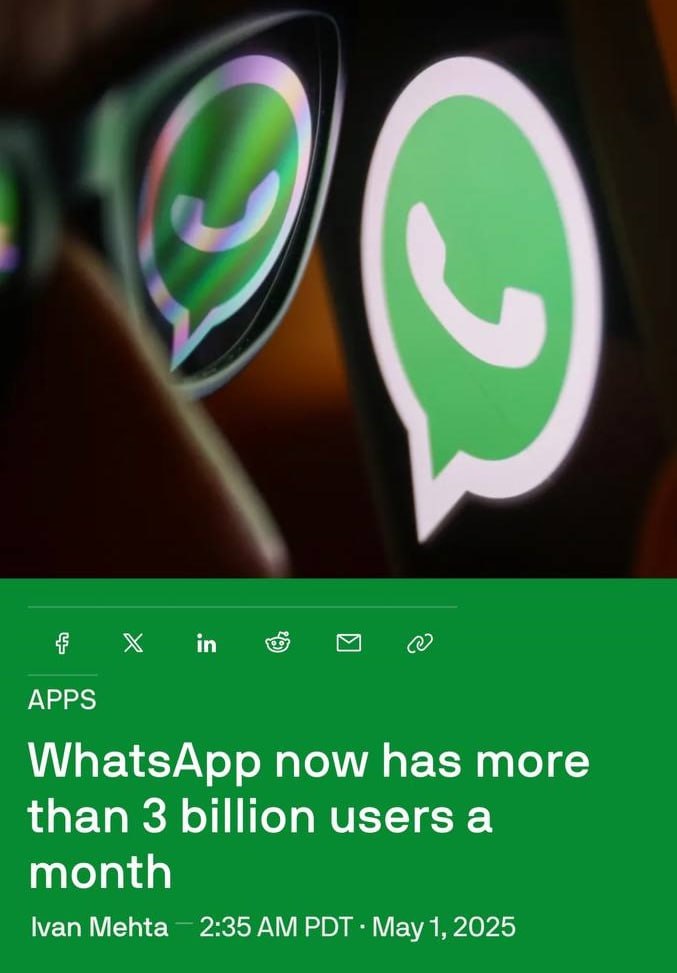In a recent Q1 2025 earnings call, Meta CEO Mark Zuckerberg announced that WhatsApp has crossed the 3 billion monthly active user (MAU) threshold, a significant milestone for the messaging app.
 This places WhatsApp in an elite league, with only Facebook — boasting 3.06 billion MAUs—having a larger user base among Meta’s platforms.
This places WhatsApp in an elite league, with only Facebook — boasting 3.06 billion MAUs—having a larger user base among Meta’s platforms.
WhatsApp’s growth trajectory has been remarkable: it hit its first billion MAUs in 2016, doubled that to 2 billion by 2020, and now, five years later, has added another billion.
Launched in 2009 and acquired by Facebook for $19 billion in 2014, WhatsApp has evolved from a simple messaging app into a global communication giant. Unlike many platforms, it remains free and ad-free, relying instead on its sheer scale and utility to drive value for Meta.
The app’s appeal lies in its simplicity and accessibility—available in over 180 countries and 60 languages, it has become a staple for personal and business communication alike. From its early days, WhatsApp has capitalized on trends like end-to-end encryption and group chats, making it a go-to for users worldwide.
 But who’s keeping Zuckerberg’s empire afloat? A surprising chunk of WhatsApp’s user base includes moms sending monthly e-cards to their kids. These small, heartfelt interactions — whether a festive greeting or a quick check-in—highlight the app’s role in maintaining familial bonds across distances.
But who’s keeping Zuckerberg’s empire afloat? A surprising chunk of WhatsApp’s user base includes moms sending monthly e-cards to their kids. These small, heartfelt interactions — whether a festive greeting or a quick check-in—highlight the app’s role in maintaining familial bonds across distances.
While WhatsApp is also a hub for business messaging and Meta’s AI initiatives, with the company noting it as a key distribution channel for AI services, it’s these personal, low-frequency connections that add to its massive MAU count. In a world of fleeting digital trends, WhatsApp’s staying power might just be its ability to keep moms and their kids connected, one e-card at a time.






